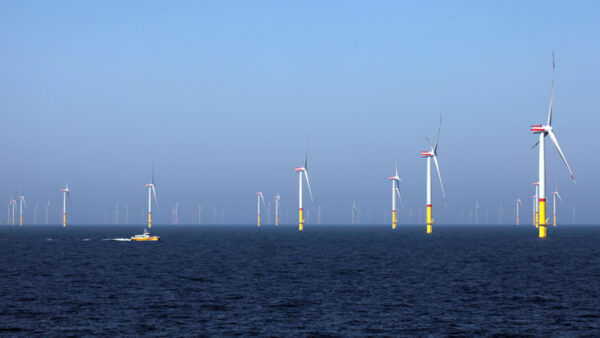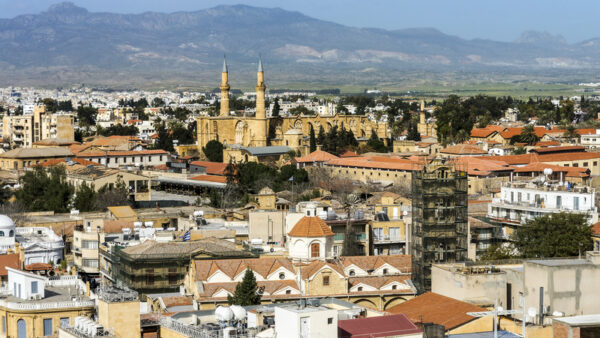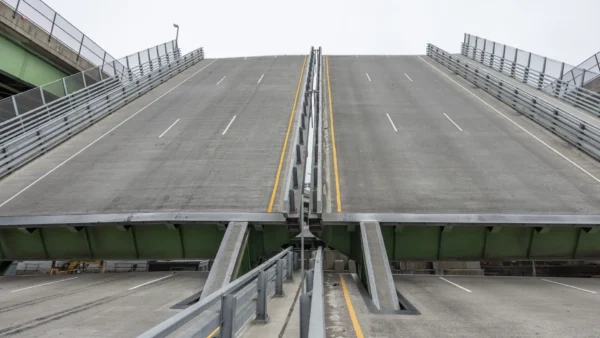Fresh doubts are assailing the UK’s first new nuclear power plant in a generation after French energy company EDF again pushed back a final decision to proceed, this time to summer 2016.
The proposed twin-reactor plant, Hinkley Point C, which EDF has costed at $26bn (£18bn), is also the subject of a new threat of legal action by environmental campaign group Greenpeace and wind energy company Ecotricity after the French government, which owns 85% of EDF, promised extra financial support for the company.
EDF and China General Nuclear Power Corporation (CGN) are financing the plant in return for a high fixed price for electricity guaranteed for 35 years by the UK government. It had been scheduled to begin generating in 2025.
On Friday, 22 April Greenpeace and Ecotricity published a legal opinion they had commissioned which said extra support from the French state could fall foul of European state aid rules, and they threatened court action against what they called “illegal state aid”.
“It’s time for everyone to realise that we’ve reached the end of the road for Hinkley Point – it’s not going to happen,” said Ecotricity founder Dale Vince.
The board of EDF has been riven with disagreements over the controversial and hugely expensive scheme, with its finance director Thomas Piquemal resigning over the matter in March.
Union representatives on the board are also concerned and news of a further delay to a final investment decision emerged on Friday when EDF announced that it would launch a 60-day consultation process with unions through the Comité Central d’Enterprise (CCE) with a view to reaching a “conclusion this summer”.
Since March last year EDF has repeatedly missed its own deadlines for a final investment decision. The latest was early May this year, set recently by Emmanuel Macron, the French economy minister. In a newspaper interview this weekend Macron said a decision could now be taken in September
The only way Hinkley can be kept alive is on the life support machine of state aid– John Sauven, Greenpeace
A good deal of expert opinion has lined up strongly against Hinkley Point C based on its high cost. Veteran utilities analyst Peter Atherton told the UK Parliamentary committee on energy and climate change last month that “it offers extremely poor value for money”.
“A power station should not cost you £20 billion and it should not take you nine to 10 years to build it,” he said. “Nuclear power stations are no different.”
Martin Young, an energy analyst at investment bank RBC Capital Markets, has told media that for EDF to proceed with Hinkley Point C would be “verging on insanity”.
But EDF seems determined to press on. Shares in the company fell on Monday, 25 April after it announced the previous Friday a refinancing plan to raise €4bn by a rights issue to raise cash for new investments including Hinkley Point C – despite wholesale power prices being at an all-time low.
The French government said it would subscribe for €3bn worth of the new shares, a substantial increase in state assistance.
On the same day, reacting to the prospect of more state assistance for what is supposed to be a private-sector nuclear scheme, Greenpeace and Ecotricity threatened to mire the project in a year-long delay by provoking another review by the European Commission (EC).
The UK’s guaranteed-price deal with EDF for electricity bought from Hinkley had already been the subject of a nine-month state-aid investigation by the EC, which returned a positive decision in October 2014.
The Hinkley opponents based their threat on a legal opinion commissioned from three competition and EU law barristers from Monckton Chambers. This opinion sets out how the French government’s refinancing plans for EDF are likely to be illegal under EU law unless they, too, are approved by the EC.
In a statement Greenpeace and Ecotricity said the French government was destroying a level playing field for European energy companies by shoring up the French nuclear industry.
“The only way Hinkley can be kept alive is on the life support machine of state aid,” said John Sauven, Greenpeace UK Executive Director.
“EDF, if it is to stay in business, needs a new vision which is not looking backwards. And the UK Government needs to stop penalising the UK renewable energy industry in favour of propping up an ailing state owned nuclear industry in France.
“Globally, the nuclear market is shrinking year by year overtaken by the huge surge in renewable energy. The UK should be a haven for renewable energy investment given the massive potential for wind, solar and tidal to cost effectively meet our energy needs.”
Greenpeace and Ecotricity said that they could take action in French and UK courts and lodge a complaint at the European Commission. That would trigger an investigation, they said, which could last as long as a year.
Photograph: Render of the twin-reactor plant Hinkley Point C proposed for Somerset, England (EDF Energy)
Comments
Comments are closed.







How inept can our successive governments be, at the 12th. hour of GB desperately requiring more generating power, the financing & construction are coming from the Chinese & the French! But the French EDF haven’t yet decided if they can afford it & Greenpeace are taking our government to court for breaching EU state funding laws. Experts say it’s verging on insanity to proceed with construction, the cost bring too much at £20bn. a 10yr. construction programme ridiculously protracted & the cost per KWh far too high! How can the EU prevent state funding fir its power generation, another great reason to leave! It could only happen in GB, you couldn’t make it up.
Sadly, the long-term outcome could be that EDF takes its project over the channel and builds it on the French coast with the loss of UK construction and operational jobs. We are already seeing unnecessary delays on airport runway and rail projects and this now just typifies the problems that UK infrastructure is faced with. Is anyone surprised by the high costs when legal and planning battles are fought…. from where else can those bills be paid ?
Hinkley Point has been a great contributor to the local Somerset economy for some 50 years and I am in favour of the construction of a third station but I am aggrieved that we find ourselves in the position where construction can only be carried out by a French company (partly state owned) and with the financial support of China.
Both the A and the B stations were the product of British engineering and it seems incredulous that we are now unable to put together a team with the requisite skills.
Rolls Royce have recently entered the debate with their smaller scale proposals – perhaps now is the time to start speaking to them?
The best thing that could happen is for this project to fail completely, should never have been started in the first place
Generally, renewables have gotten large, market-distorting subsidies, as well as outright mandates for their use, which significantly harms the ability of competing sources like nuclear to compete. Essentially, policies hand the entire new generation market (or the clean generation market, anyway) to renewables, by govt. fiat.
Given this, it’s ironic that when nuclear finally gets some state support (subsidy) renewables companies (as well as the usual suspects like Greenpeace) immediately sue, the stated reason being that it will have some effect on renewable sources ability to compete. Ecotricity’s renewable projects are still subsidies, perhaps to an even greater degree than Hinkley. You can’t make this stuff up.
The nuclear industry should take a cue from this and sue governments all over the globe (certainly all those in Europe and America) over their renewables subsidies and mandate policies which have clearly made it harder for nuclear to compete.